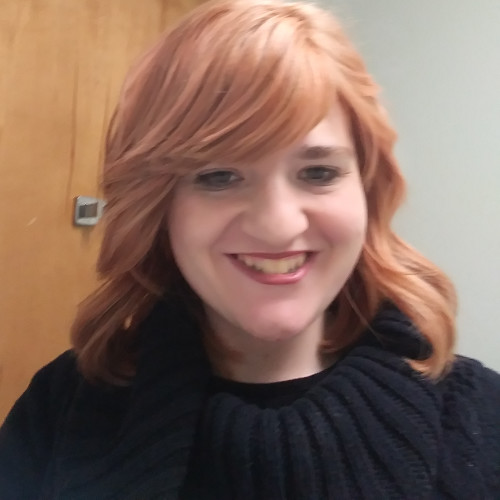Shifrah Marcus
Credentials
Finances
Licensed Abroad
- Yechezkel Hanavi 2
- Beit Shemesh, 9914089
- Email Me
-
 Business Hours
Business Hours
Evenings
Shifrah Marcus
 Verified
Verified
Credentials
Psychotherapist
LCSW
Finances
150-250 NIS
None
Sliding Scale
Licensed Abroad
- Yechezkel Hanavi 2
- Beit Shemesh, 9914089
ABOUT
Dedicated Clinical Social Worker specializing in individual therapy with adolescents and adults. I graduated from Simmons University with a focus in trauma. I utilize Internal Family Systems, Narrative Therapy, Systems Theory and Solution Focused Therapy in my work with clients. My goal is to help your inner self connect with all its parts so that they can feel heard and can process the experiences that you have gone through.
Experience working with people with chronic illnesses, trauma, anxiety, and developmental disabilities.
QUALIFICATIONS
LCSW
Simmons University
2017
Degree
LCSWEducation
Simmons UniversityYear of Graduation
2017Years in Practice
5
LICENSED ABROAD
License Category
Clinical Social WorkerLicense Number
123622 - MAADDITIONAL CREDENTIALS
IFS Level 1 - IFS Institute, 2023
DISTANCE COUNSELING
Telephone Counseling, Online Therapy
PRIMARY SPECIALTIES
Adjustments
Anxiety / Panic
Developmental Disorders
Life Transitions
Trauma / Post Traumatic Stress Disorder PTSD
ADDITIONAL SPECIALTIES
Family Issues
Grief
Stress Management
CLIENT FOCUS
Population
Adolescents
Adults
Women
Geriatric
Languages
English
TREATMENT APPROACH
Adlerian Psychology / PsychotherapyAdlerian therapy is a short-term, goal-oriented, and positive psychodynamic therapy. It focuses on the development of individual personality while asserting that
humans are interconnected. During therapy, practitioners pay particular attention to beliefs and behaviors that were developed by the client in childhood.
Clients’ behavior is explored in the context of their sense of ‘fitting in’ in their community and society. The goal of therapy is to acquire a more positive
and productive way of life by developing new insights, skills, and behaviors. This is achieved through 4 stages of Adlerian Psychotherapy:
1. Engagement: The client and therapist begin to establish the therapeutic relationship. The relationship consists of collaboration towards addressing the client's
problems.
2. Assessment: Gathering information about the client's life and presenting concerns. In this part of therapy, the therapist attempts to understand how the client may have developed certain styles of thinking that are no longer helpful or adaptive for them.
3. Insight: The therapist helps the client gain insight into their behavior and motivations and helps to develop new ways of thinking about his or her situation.
4. Reorientation: Encouraging the client to use their newfound insight and goals to to develop new strategies that the client can use in daily life.
Internal Family Systems (IFS)Internal Family Systems (IFS) is an evidence-based psychotherapy that uses the metaphor of an internal family of parts to help people gain awareness of how different parts of themselves can interact in healthy and unhealthy ways. IFS encourages people to become curious about their different parts, with the goal of helping them gain access to their true Self or core. Through this process, people can learn to recognize and care for the different parts of themselves, as well as develop compassionate understanding for the origins of their parts. A key principle of IFS is that each part within the person has its own positive intention and is trying to protect the person in some way. By understanding the positive intention of each part, the practitioner and client can work together to help the parts feel heard and understood, and to find more adaptive ways of meeting their needs. IFS has been found to be an effective treatment for a variety of mental health issues, including depression, anxiety, trauma, and relationship issues.
Narrative TherapyNarrative therapy is a form of psychotherapy that focuses on the stories, or narratives, of a person's life in order to help them gain insights into their situation and develop skills to make positive changes. It is based on the idea that people construct their own stories and meanings to make sense of their lives and experiences. It emphasizes the strengths, values, and skills of the person, while also exploring the influences of culture and context on their life. Narrative therapy seeks to empower individuals by helping them to identify and use their inner resources to overcome challenges and create positive change.
Systems Theory / TherapySystems therapy is a type of psychotherapy that focuses on understanding how people's behavior is affected by their relationships with others. This form of therapy is based on the idea that the individual is embedded within a larger system, such as a family unit or work environment, and that changes to that system can cause changes in an individual's behavior. Systems therapy emphasizes the importance of understanding how these systems interact and how they can be changed to improve the individual's mental health. The therapist works to identify patterns of behavior in the system, identify areas of conflict or stress, and help the individuals develop strategies to make changes within the system that will lead to healthier outcomes.
SERVICES OFFERED
Individual Therapy

 Verified
Verified 

